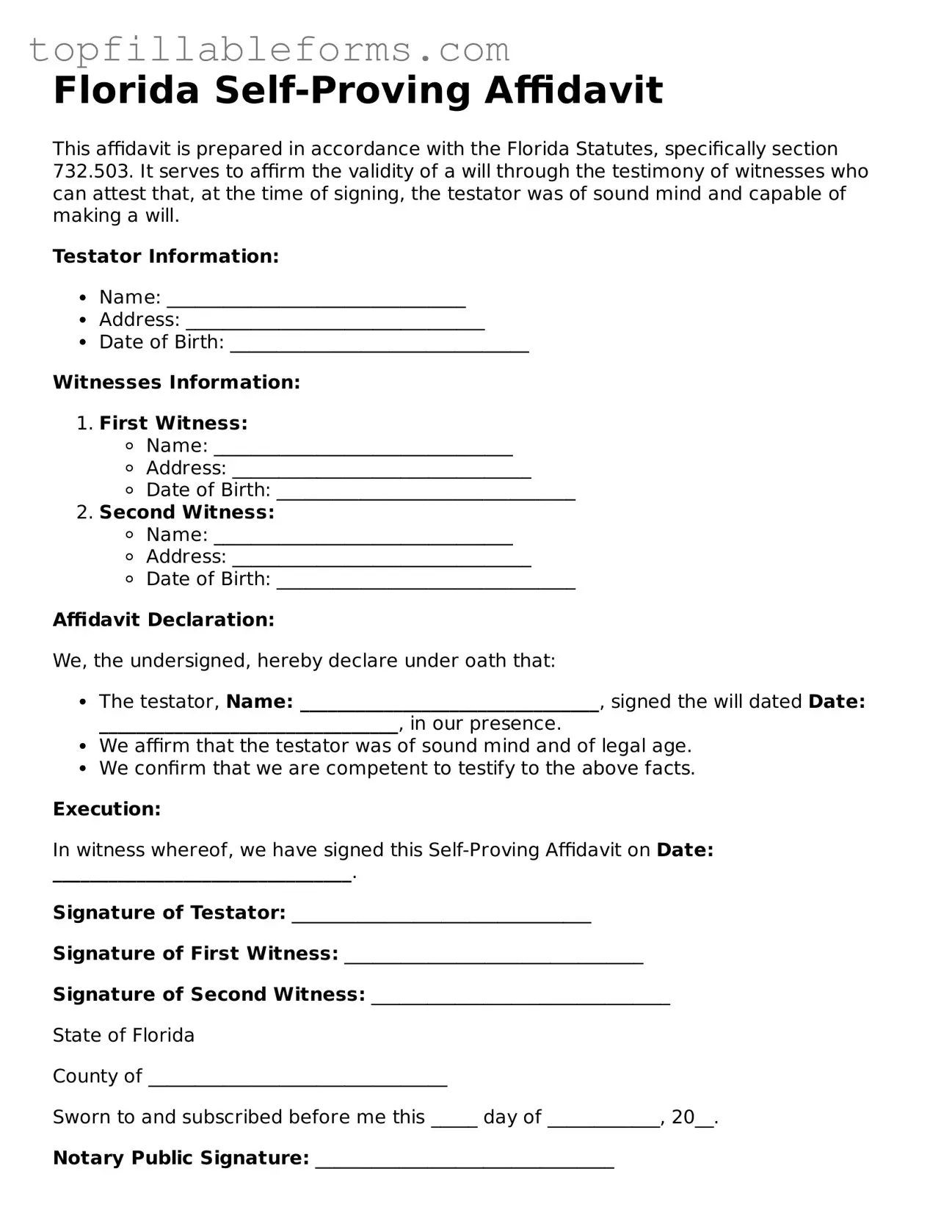Attorney-Verified Self-Proving Affidavit Template for Florida
The Florida Self-Proving Affidavit is a legal document that allows a testator's will to be validated without the need for witnesses to testify in court. This form streamlines the probate process by confirming the authenticity of the will at the time of its execution. By utilizing this affidavit, individuals can ensure that their final wishes are honored efficiently and effectively.
Open Self-Proving Affidavit Editor Here

Attorney-Verified Self-Proving Affidavit Template for Florida
Open Self-Proving Affidavit Editor Here
Finish the form now and be done
Finish your Self-Proving Affidavit online by editing, saving, and downloading fast.
Open Self-Proving Affidavit Editor Here
or
▼ PDF File
